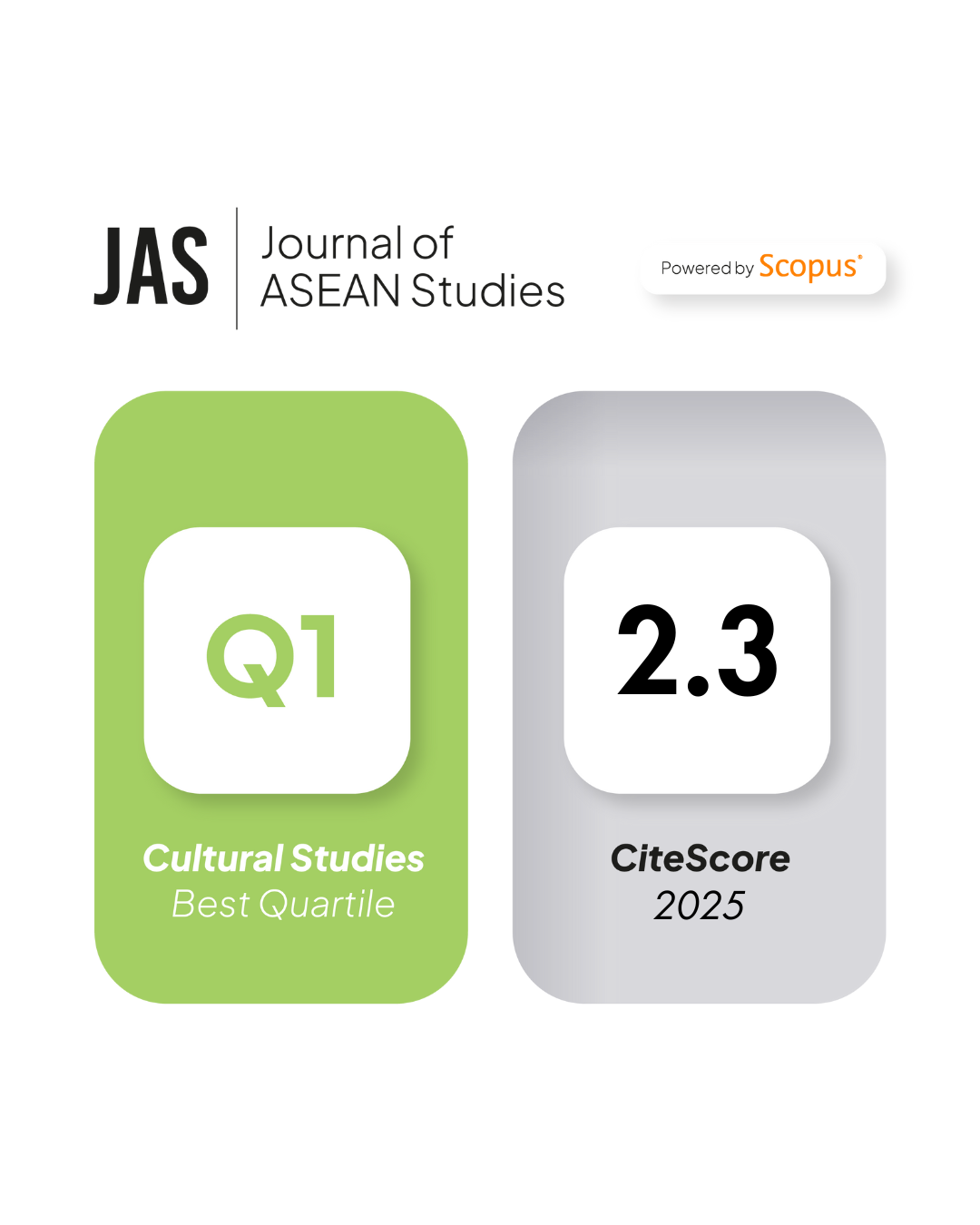The Predatory State and Radical Politics: The Case of the Philippines
DOI:
https://doi.org/10.21512/jas.v7i2.6163Keywords:
predatory state, elite democracy, radical politics, President DuterteAbstract
This paper examines why the radical approach to politics of President Rodrigo Duterte, halfway into his term, has not overcome the predatory nature of the Philippine state. The predatory nature of the state implies that politics in the country is still defined by vested interests. The struggle of the Filipino is largely due to the structural nature of the injustices suffered by the country. Duterte’s brand of politics is antagonistic. The president is a polarizing figure. Despite the declaration that he will punish corrupt officials, traditional politicians and elite clans continue to rule the land with impunity. The country’s political ills are actually systemic. Elitism is rooted in colonial history that is perpetuated by an inept bureaucracy. It will be argued that the strong resolve and charisma of a leader is inadequate to remedy the troubles in fledgling democracies such as the Philippines.
References
Abinales, P. N., & Amoroso, D. J. (2005). New States and Reorientations 1368–1764. State and Society in the Philippines. Lanham, Md.: Rowman & Littlefield, 53.
Aurelio, J. (2019, July 6). Dela Rosa’s comment on child’s death in police raid hits the fan. Retrieved from Philippine Daily Inquirer: https://newsinfo.inquirer.net/1138433/dela-rosas-comment-on-childs-death-in-police-raid-hits-the-fan
Conde, C. (2019, July 1). Three-year old girl latest Philippines’ Drug War victim. Retrieved from Human Rights Watch: https://www.hrw.org/news/2019/07/01/three-year-old-girl-latest-philippines-drug-war-victim
Cullinane, M. (2003). Ilustrado Politics. Quezon City: Ateneo de Manila University.
David, R. (2016, May 1). Dutertismo. Retrieved from Philippine Daily Inquirer: https://opinion.inquirer.net/94530/dutertismo
David, R. (2017, June 17). Where is ‘Dutertismo’ Headed?. Retrieved from Philippine Daily Inquirer: http://opinion.inquirer.net/109531/where-is-dutertismo-headed#ixzz5MnE0yDr6
Elemia, C. (2019, March 2). Pacquiao: Too much democracy is bad for the Philippines. Retrieved from Rappler: https://www.rappler.com/nation/224754-manny-pacquiao-too-much-democracy-is-bad-for-the-philippines
Esmaquel, P. (2017, August 30). What have we done to deserve this?. Retrieved from Rappler: https://www.rappler.com/nation/180640-catholic-religious-superiors-duterte-drug-war-killings
Hotchcroft, P., & Rocamora, J. (2003). Strong Demands and Weak Institutions: The Origins and Evolution of Democratic Deficits in the Philippines. Journal of East Asian Studies, 3(2): 259-292.
Human Rights Watch. (2019, July 23). World Report 2019: Philippines. Retrieved from Human Rights Watch: https://www.hrw.org/world-report/2019/country-chapters/philippines
Jensen, S., & Hapal, K. (2018). Police Violence and Corruption in the Philippines: Violent Exchange and the War on Drugs. Journal of Current Southeast Asian Affairs, 37(2): 39-62.
Kusaka, W. (2017). Moral Politics in the Philippines. Singapore: National University of Singapore Press.
Labastin, B. (2018). Two Faces of Dutertismo: Two Visions of Democracy in the Philippines. Social Ethics Society Journal of Applied Philosophy, 4(3): 31-54.
Mouffe, C. (1995). Liberalism and Modern Democracy. In J. Carens, Democracy and Possessive Individualism. New York: SUNY Press.
Panarina, D. S. (2017). Rodrigo Duterte: Who is He?. International Relations,17(3): 588-597.
Paredes, O. T. (2002). Capital, Coercion and Crime: Bossism in the Philippines, John Sidel. Moussons, 5(2): 137-139.
Pilario, D. F. (2017). Praying Bodies, Dying Bodies: A Reflection on the Nazareno and the Santo Nino. Philippine Sociological Review, 65: 160-162.
Quimpo, N. G. (2005). Oligarchic Patrimonialism, Bossism, Electoral Clientelism and Contested Democracy in the Philippines. Comparative Politics, 37(2): 229-250.
Quimpo, N. G. (2009). The Philippines: Predatory Regime, Growing Authoritarian Features. Pacific Review, 22(3): 335-353.
Rafael, V. (2016, June 13). Duterte’s Hobbesian World. Retrieved from Philippine Daily Inquirer: https://opinion.inquirer.net/95185/dutertes-hobbesian-world
Rappler. (2019, March 2). 4 of 5 Filipinos worry over extra-judicial killings – SWS. Retrieved from Rappler: https://www.rappler.com/nation/224732-sws-survey-filipinos-worry-becoming-ejk-victim
Sidel, J. (1999). Capital, Coercion and Crime: Bossism in the Philippines. Stanford: Stanford University Press.
Tadem, T., & Tadem, E. (2016). Political Dynasties in the Philippines: Persistent Patterns, Perennial Problems. South East Asia Research, 24(3): 328-340.
Talabong, R. (2019, June 9). Pacquiao is senate’s top absentee. Retrieved from Rappler: https://www.rappler.com/nation/232615-manny-pacquiao-senate-top-absentee-attendance-congress-adjourns-2019
Villamor, F. (2018, July 23). Your concern is human rights, mine is human lives, Duterte says in Fiery Speech. Retrieved from New York Times: https://www.nytimes.com/2018/07/23/world/asia/philippines-duterte-speech-muslims.html
Wood, G. (2017, May 2). The Thug Appeal of Duterte. Retrieved from The Atlantic: https://www.theatlantic.com/international/archive/2017/05/rodrigo-duterte-donald-trump/525072/


























